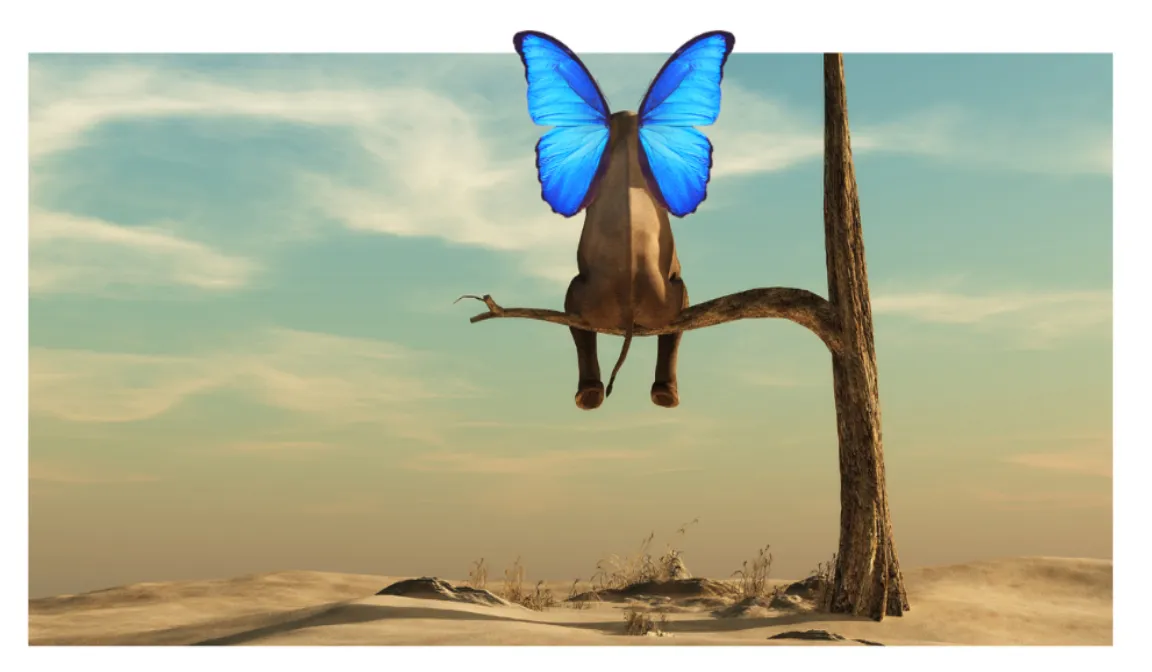
Unleashing the Elephant: Beyond the Corporate Zoo
When we think of elephants, we often envision their grandeur and intelligence in vast, wild landscapes. Yet, what happens when these magnificent creatures are confined to the limited spaces of a zoo? This metaphor strikingly mirrors our experiences in the modern workplace.
Consider the elephant – not just any elephant, but one in its natural habitat. These majestic creatures, with the largest brains of any land animal and thrice as many neurons as humans, exhibit extraordinary mental capacities, as noted by Laburn in 2010. Their intelligence isn't just for managing their massive, dexterous bodies; it's also evident in their complex social interactions and environmental impacts.
In the wild, elephants form intricate social structures. Herds, typically comprising related females and their calves, reflect a sophisticated societal organisation. This contrasts sharply with the conditions in zoos, where elephants often face limited, unchanging social environments. As Ellen Williams, Anne Carter, Carol Hall, and Samantha Bremner-Harrison pointed out in their 2019 study, such settings fail to mimic the dynamic social drivers found in natural habitats, potentially affecting the elephants' welfare.
Wild elephants shape their environment – trampling water sources into muddy puddles, creating extensive paths, and, in doing so, playing a crucial role in their ecosystem. Every action, from toppling trees to dispersing seeds, contributes to a cycle of life, nurturing various species and fostering regrowth.
Humans share similarities with elephants, particularly in our significant impact on the planet. We consume, explore, and transform our surroundings, yet often, our actions miss the mark in creating positive environmental opportunities. While advancing our living standards, our industrial organisation and workplace systems can detach us from the collective, collaborative behaviours essential for our well-being.
In their natural environments, elephants thrive in extended family units, which is essential for developing normal behaviour and relationships. In zoos, however, limited group sizes can lead to abnormal behaviours like swaying or pacing, signs of distress akin to human experiences of burnout.
Just as elephants thrive in expansive landscapes fostering social bonds and environmental interaction, employees flourish in workplaces, encouraging creativity, collaboration, and personal growth.

Each of the above statements attempts to convey the parallels between the regulated, sometimes restrictive nature of workplaces and the artificial conditions of zoos, which frequently result in unnatural behaviours and limits on natural tendencies. This begs the question: In our own 'zoos' of modern life, filled with micro-stresses and disconnection, are we, like these elephants, straying from our natural collaborative well-being?"
To conclude, here are some remarks from ChatGPT4 emphasising the limits and artificial character of both environments:
"A corporate office can sometimes resemble a zoo; each department like a different enclosure, confining natural instincts in favour of organisational rules."
"Just as a zoo fails to capture the essence of the wild, a cubicle-bound workplace often stifles the natural flow of ideas and energy."
"Navigating the workplace can feel like walking through a zoo, where every enclosure represents different office politics and survival tactics."
"Much like a zoo, the modern workplace often puts us on display in artificial habitats, far removed from our natural, collaborative environments."
"Office life is the human equivalent of a zoo; we're placed in boxes, expected to perform tasks that are often against our nature, under the watchful eyes of supervisors."
Next Steps
As we navigate our own 'corporate zoos', let's ponder: How can we break free from artificial constraints to embrace our collaborative and creative nature? Join me in exploring paths to a more natural, fulfilling work habitat.
Click on the link below for a 30-minute complimentary exploratory conversation.
https://calendly.com/desleylodwick/30-minute-exploratory-conversation
Schedule a free 30-minute exploratory discussion with Desley Lodwick here.
Consider resharing and following Dr. Desley Lodwick to see more content like this.